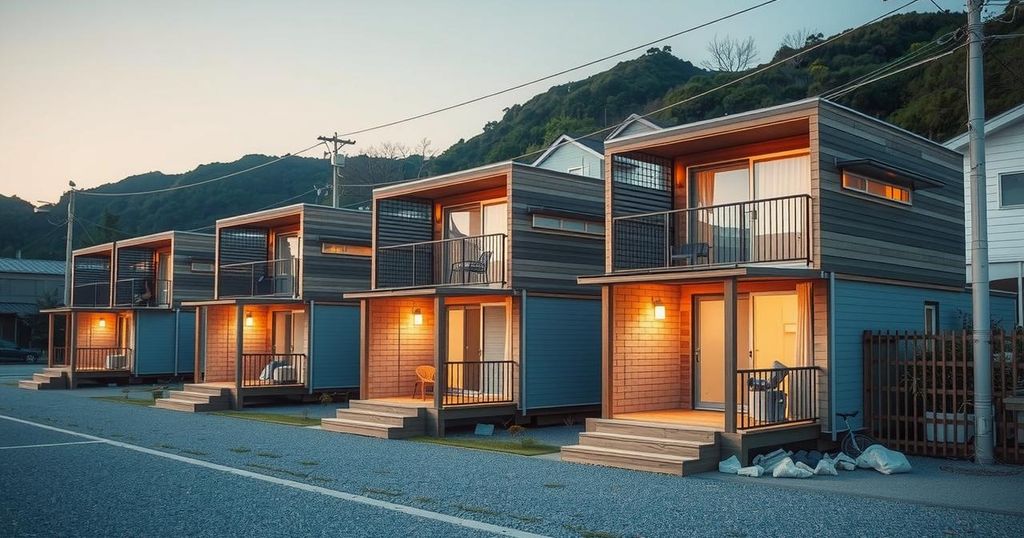Noto Peninsula Residents Face Uncertainty One Year After Quake

One year after a catastrophic earthquake rocked the Noto Peninsula, residents, including 83-year-old Sueko Naka, navigate profound displacement and uncertainty as they cope with the aftermath of loss and slow recovery efforts. The community faces fears of future disasters amidst a demographic crisis, with many questioning whether they will be able to rebuild their lives in a region forever changed.
As the residents of the Noto Peninsula reflect upon the devastating 7.5-magnitude earthquake that struck on New Year’s Day 2024, many, like 83-year-old Sueko Naka, grapple with the trauma of displacement. Forced to leave their homes, Naka now resides in a temporary unit with her family, facing an uncertain future. “When I imagine I might die here, I can’t sleep well,” she lamented, emphasizing the emotional toll of their new reality. The earthquake resulted in nearly 470 fatalities and left significant portions of the region damaged.
One year following the tragedy, many survivors remain in shared emergency shelters, with some returning to makeshift accommodation. Reconstruction efforts in Wajima have been slow, further complicated by ongoing aftershocks and devastating floods. Only a quarter of the destroyed buildings have been demolished, leaving the landscape resembling a war zone as demolition crews work to clear debris from treacherous roads.
The emotional burden on families has been profound, with many contemplating relocation as a response to the dual crises of aging infrastructure and a declining population. The recent natural disasters underline the vulnerabilities of this rural region as it faces an unprecedented demographic crisis. Wajima, once home to nearly 30,000 residents a decade ago, now has fewer than 21,000, presenting challenges to community cohesion and economic stability.
As families like Naka’s are torn apart, the sense of hesitance about returning home looms large. The desire to repair their lives is met with the apprehension of the potential for future disasters. “I think our town could be headed straight for extinction,” said Chugo Maruyama, highlighting the serious threat to Wajima’s survival post-quake. The New Year has become a time of fear rather than celebration, as families seek solace amidst uncertainty, yearning to unite once again despite the looming doubts about their safety.
Japan’s Noto Peninsula recently endured a catastrophic earthquake, which caused widespread devastation and emotional upheaval among its residents. The 7.5-magnitude quake on January 1, 2024, was the country’s deadliest in a decade, resulting in significant loss of life and extensive property damage. Survivors face the compounded challenges of aftershocks, harsh weather conditions, and slow recovery efforts, leading to widespread displacement and fears of permanent relocation. The region’s ongoing demographic crisis is exacerbated by these disasters, threatening the fabric of community life and prompting many locals to reconsider their future in the area.
In summary, the Noto Peninsula continues to grapple with the aftermath of a devastating earthquake that has forever altered the lives of its residents. With many still displaced and reconstruction progressing slowly, fear and uncertainty overshadow hopes for recovery. The challenges faced by survivors not only encompass physical rebuilding but also the emotional scars left by the disaster, as families wrestle with the desire to return home amidst the fear of future calamities. The demographic decline further complicates the region’s recovery, potentially signaling a grim future for a once-thriving community.
Original Source: japantoday.com








